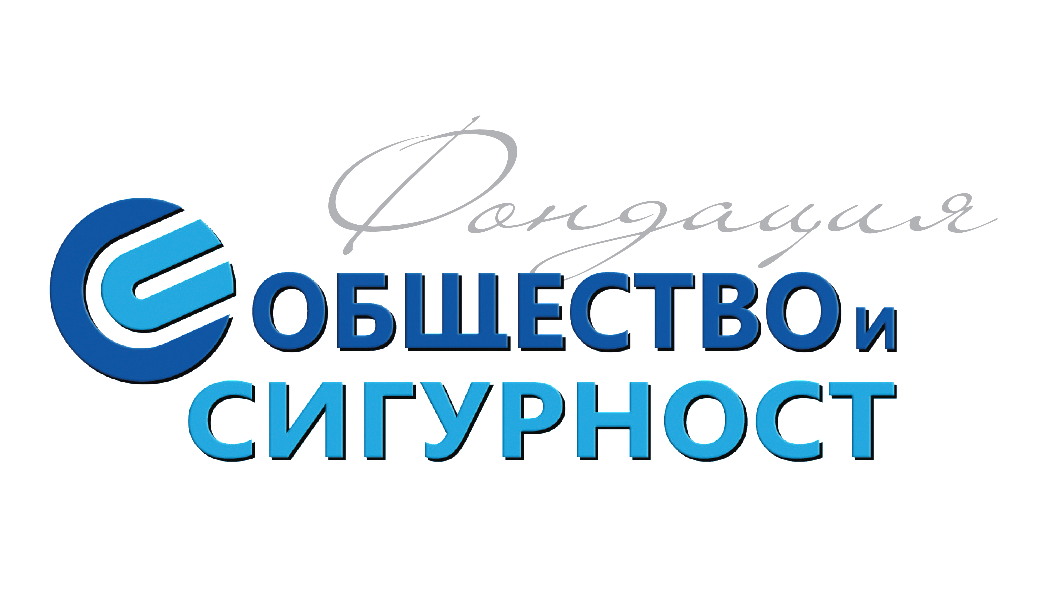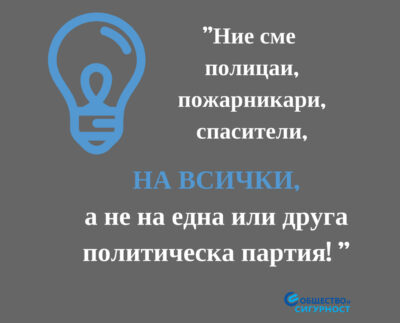- 25.01.2017
MoI: in cervice of people or politicians?
If any government had been replaced it always brought ad hoc and politically motivated changes. These changes are quite often and the main reason for the occupational stress and insecurity about their jobs among police officers, firefighters, rescuers and all workers in Ministry ot Interior. It has been said that…
- 19.07.2016
I am a mother!
“I am a mother and my daughter is very proud that I’m a police woman. She knows that I look out not only for her safety and security, but also for her friends in kindergarten. What she doesn’t known is that I am dreaming for the day when the system will be…
- 19.07.2016
The Budget and the Policies of MoI in 2016
Do we know how our money are spent? You can see in the infographics below.
- 19.07.2016
The policeman, who chose the profession, because of the love to his father…
“Unlike many of my colleagues, no one in my family was not a policeman, but I made this choice, because of my father. My father creates and sculpts figures and whole life is giving life to the tree. He wanted to see peculiar for his work – he wanted his…
- 27.06.2016
Training on policies for gender equality in MoI
On 25 and 26 June 2016 a training on the project “Policies on Gender Equality in MoI: what to be?”, financed by the Bulgarian Fund for Women was conducted, The training was attended by 10 officers of MoI working in different structures – Security Police, Criminal Police and National System…
- 23.06.2016
Children on duty!
A few months ago I was out playing basketball with my children when the ball rolled into the street. I went to it, but suddenly the laugh of my children disappeared and they froze. They saw two patrol cars on the corner. The vehicles turned and were moving slowly towards…
- 01.04.2016
There are days…
Each day is different. There are days I’d been shouted. Days when people fainted in my arms. Days when my stripes had been torn and people spat in my face. Days, I’ve heard and seen how the life vanished. Days like these are not uncommon, but are quickly forgotten, because…
- 15.01.2016
Official position of the Society and Safety Foundation about the Minister of Interior’s statement
Society and Safety Foundation is one of the few civil organizations in Bulgaria which puts as a priority on its activities the improvement of the “civil security” service provided by the Ministry of Interior, which is directly linked with the improvement of the quality of work and working conditions in the MoI’s system. Regarding…
- 13.02.2015
How MoI must look like in 15 years?
MoI officers and representatives of civil society participated in the process of identification of approaches came to a basic conclusion: before a vision and develop a strategy for long-term reform to be created it is necessarily a broad public discussion with representatives of NGOs, professional and trade union organizations to…

